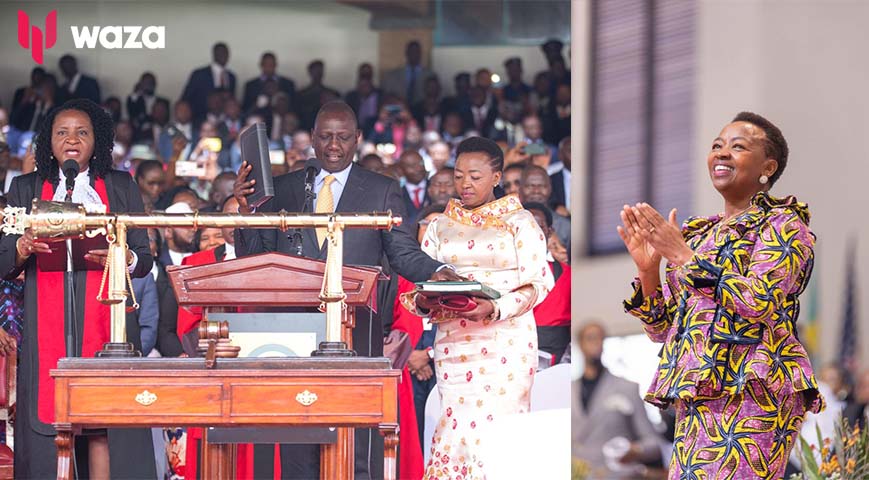On Wednesday night, First Lady Rachael Ruto conducted a thanksgiving service to mark a year since President William Ruto was sworn in.
The First Lady welcomed Kenya Kwanza leaders and other visitors to Uhuru Gardens in Nairobi "to give thanks for the blessings the Lord has bestowed on us in this first year of this administration.
Ms Ruto wrote in a post on X, the social media site formerly known as Twitter, "The last year has been challenging, but God has watched over us." We are grateful to the Most High God for what He has done; it is truly unique."
She went on to quote a Bible text on gratitude and thanksgiving, adding, "As a people, we choose to be counted among the one leper who returned to Jesus to say thank you." (Luke 17:15) We give thanks to God!"
"To all elected leaders, let us go back to the grassroots and serve the people of Kenya," she continued.
Did you read this?
President Ruto was sworn in as Kenya's fifth president one year ago on September 13. Kenyans have protested the rising cost of living and increasing taxation, among other things, on his first anniversary.
Ruto barely won the August 2022 election on the promise of a "bottom-up" economic plan that would put more money in the wallets of what he refers to as "hustlers"; small dealers, informal employees, and others living on the breadline.
Nonetheless, in his first year, he imposed new levies and increased borrowing to an all-time high.
According to the most recent Central Bank of Kenya figures, inflation declined to 6.7% in August.
Nonetheless, commodity costs have risen in the last year, with petrol rising 22%, electricity rising nearly 50%, and household essentials such as sugar and beans rising 61% and 30%, respectively.
Pollsters have given Ruto a low rating among Kenyans, with a recent survey by research firm Infotrak found that 53% of Kenyans believe the country is heading in the wrong direction.
"For I was hungry and you gave me something to eat, I was thirsty and you gave me something to drink, I was a stranger and you invited me in". (Matthew 25:35 NIV) pic.twitter.com/wwjmxILZv1
— Mama Rachel Ruto, EGH (@MamaRachelRuto) September 13, 2023
According to the results of an opinion poll taken on September 10 and released on Tuesday, another 30% believe Kenya is on the right track, while 13% are unsure whether the country is heading in the right or wrong path.
The key challenges that Kenyans are concerned about include the high cost of living, unemployment, and inexpensive quality education.









